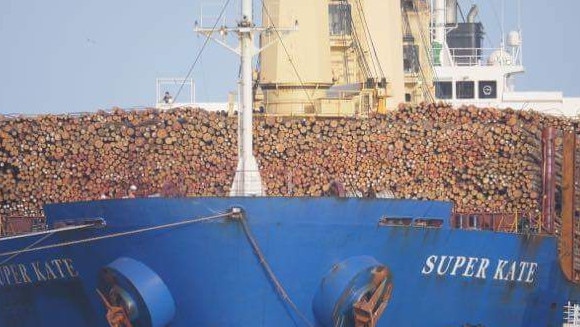South East councils call for federal inquiry into timber industry ahead of election
South East councils are calling for a federal inquiry into the timber industry, with concerns the volume of product being exported is affecting local jobs.

Jobs SA
Don't miss out on the headlines from Jobs SA. Followed categories will be added to My News.
South East councils are calling for a federal inquiry into the timber industry, with concerns the volume of product being exported is affecting local jobs.
Wattle Range Council mayor Des Noll said the timber production industry contributed $300 million to the Limestone Coast’s economy and supported 2500 direct and indirect jobs.
But Mr Noll said a significant amount of jobs had been shed from the sector, particularly after Carter Holt Harvey closed its Nangwarry timber mill in December.
“Nangwarry was the last mill to close, within a decade it went from employing 300 people to none,” Mr Noll said.
“Without this value adding industry in the region, towns and communities will struggle to survive.
“It’s about securing jobs for the future, which is a particularly big issue for smaller logging towns.
“As six regional councils in the South East, we have taken the unprecedented step in forming a united front to protect local jobs and families. It sends a strong message as a collective.
“We’re not challenging the export market, we’re simply trying to look after local producers.”
City of Mount Gambier mayor Lynette Martin said the sector was a valuable contributor to the local economy.

“The smaller milling towns like Kalangadoo, Mount Burr and Tarpeena all contribute to Mount Gambier’s economy and this contribution is particularly important with the changing face of retail in the region and empty shops appearing,” she said.
“If we lose more jobs, we’ll probably lose more of our businesses as well.
“We need to grow the industry to grow the population and support the local towns.”
Wattle Range Council chief executive officer Ben Gower said smaller towns in the region were struggling to survive.
“Some are even without a corner store because they’ve lost their key industry,” he said.
“These are sites that could still be providing plenty of jobs.
“What we’re looking for is a rebalance in the market place. Mills have the capacity to grow, there are contracts being offered to them, but they just can’t get the material to do it.”
Mr Gower said the issue had been building for a number of years.
“That’s why we’re using the election as a vehicle to raise awareness of the issue,” he said.
Mr Gower said the turmoil in the timber industry was spreading out to other industries including viticulture and agriculture, with a shortage of fence posts across the country due to the tight supply.

SA Timber Processors Association chief executive David Quill said the timber industry had plenty of potential, with global demand growing.
“One of the reasons we’re doing this is to get an economic study done, so we can establish the true potential in the industry,” he said.
In 2012, the-then state government sold Forestry SA to OneFortyOne Plantations for $670 million, a move that sparked plenty of controversy.
“The sale of state-owned assets and change of ownership, along with demand from China, led to a situation where a huge amount of logs are being exported,” Mr Quill said.
“As a consequence of this, the potential for expansion within the processing industry is lessened.
“I believe there’s always a place for exports, but this is really about protecting our own economy.”
Councils involved in the campaign include the District Council of Grant, the Kingston District Council, the City of Mount Gambier, the Naracoorte Lucindale Council, the District Council of Robe and Wattle Range Council.
As part of the council’s push, a social media campaign is being launched with the hashtag #aussietimberjobsfirst.
The campaign has already garnered the support of Member for Barker Tony Pasin, who pledged that a re-elected liberal government would request the Standing Committee on Agriculture and Water Resources conduct an inquiry into timber supply constraints in the national plantation sector.
Mr Pasin said the government’s national forestry plan aimed to deliver a billion new trees over a decade to meet a projected quadrupling of global demand for timber products by 2050.
Comment has also been sought from the Labor Party.


